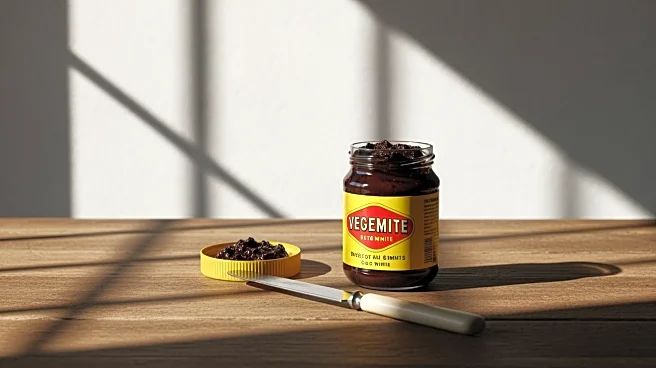What's Happening?
Andre McKechnie, a convicted murderer in Australia, is suing the state of Victoria over a ban on Vegemite in prisons. McKechnie argues that the prohibition infringes on his human rights to enjoy his culture
as an Australian. The ban, in place since 2006, is due to concerns that Vegemite interferes with narcotic detection dogs and can be used to produce alcohol. McKechnie is seeking a court declaration that the ban violates his rights under the Charter of Human Rights and Responsibilities Act and the Corrections Act. The case is set for trial next year.
Why It's Important?
This legal challenge highlights the ongoing debate about prisoners' rights and cultural practices within correctional facilities. The outcome could set a precedent for how cultural rights are balanced with security measures in prisons. If successful, the case may prompt a reevaluation of contraband policies in Australian prisons, potentially affecting how other cultural items are treated. The case also underscores the tension between maintaining prison security and respecting individual rights, a topic of interest to human rights advocates and legal experts.
What's Next?
The trial is scheduled for next year, and its outcome could influence prison policies across Australia. Corrections Victoria and the Department of Justice have not commented, citing the ongoing legal proceedings. The case may attract attention from human rights organizations and could lead to broader discussions about cultural rights in correctional settings. Depending on the court's decision, there may be changes in how prisons manage items considered contraband, impacting both inmates and prison administration.
Beyond the Headlines
The case raises questions about the cultural significance of food and its role in identity, particularly in multicultural societies. It also touches on the ethical considerations of denying cultural practices in prison environments. The legal challenge could spark discussions on how cultural heritage is preserved and respected within institutional settings, potentially influencing policies beyond the prison system.











